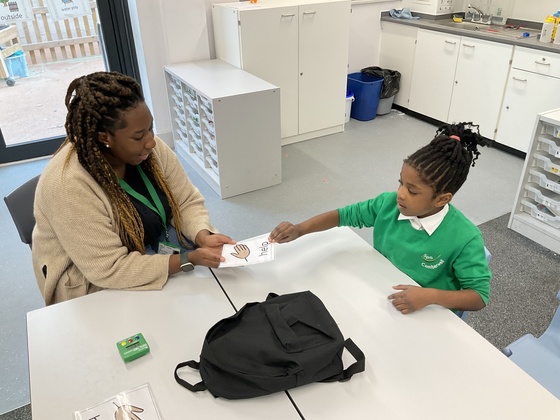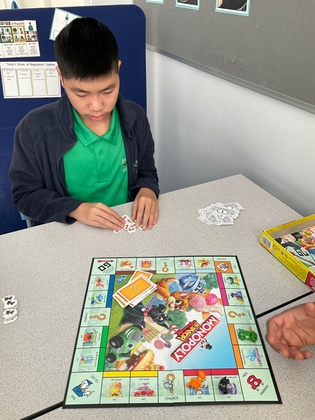

Social Communication lessons are unique to the Spa curriculum. They provide students with opportunities to learn how to communicate successfully with others across a variety of situations.
Lessons are based around our student’s individual and specific communication and social interaction needs identified in their EHC plans.
We develop confidence, independence, advocacy and communication with others. The Social Communication curriculum will focus on preparation for adulthood and independence. Students rehearse and develop social skills to learn how to:
-
maintain and develop relationships
-
co-operate and work productively at school
-
understand and be confident in the broader community.
The Social Communication curriculum is planned through schemes of work which address key issues such as:
-
communicating needs and wants
-
taking turns
-
working as part of a group
-
asking for help
-
interacting safely in the community.
The Learning to Learn Curriculum
During Social communication lessons students have the opportunity to develop their communication skills using functional communication. Students are support to access a range of communication systems including iPad (such as Proloquo2Go), Picture Exchange Communication (PECS), Makaton Signing, symbols to support understanding of written and spoken language and other visual supports. Functional communication systems are imbedded in the lessons to support students to develop lifelong communication skills. Requesting and getting basic needs meet are often the first skills taught.
The Learning Together Curriculum
Students continue to develop their communication skills. Extending to turn taking, conversation skills and commenting. Students continue to develop their functional communication skills. Skills are practiced in a range of environments, with a range of communication partners. Students develop their social skills through a range of role play and explicit teaching.
The Learning for the Future Curriculum
Every class takes part in weekly Social communication lessons. Engaging activities, such as role play and practical life skills activities are based on real life situations. Students are supported in transferring and generalising their skills to a variety of situations. Lessons also included direct teaching which supports each pupil’s individual communication targets.

